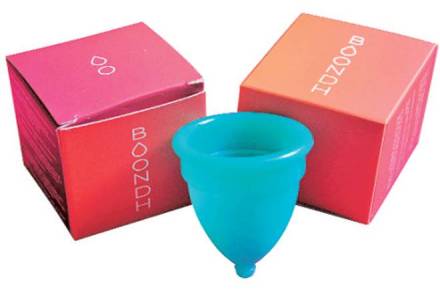By Venkata Susmita Biswas
From being a Rs 34 crore market back in 1989, when P&G launched its sanitary napkin brand Whisper in India, the feminine hygiene space is expected to become a Rs 3,400 crore market by 2020, according to Euromonitor. Apart from the big FMCG players, several start-ups have sprung up, offering a range of products such as toilet seat sanitisers, intimate wash solutions, menstrual cups, period pain relief roll-on sticks and disposable urination devices.
However, despite the rallying cry for better menstrual hygiene, the uptake for these new-age products has been sluggish. The primary reason being that it calls for women to change their personal care habits — a tall order, unless it comes with a doctor’s recommendation.
Shy to try
At an event aimed at raising awareness on menstrual hygiene, Chetna Soni, associate director and country leader, feminine care, P&G, pointed out that less than 50% of the women in urban India use healthy menstrual hygiene protection like pads; and this number is much lower in the hinterlands.
Bollywood movies like Toilet: Ek Prem Katha and Pad Man have sparked much-needed public conversations on the importance of sanitation and menstrual hygiene. Yet, says Pooja Jauhari, CEO at ad agency The Glitch, it continues to be a taboo topic due to social constraints, or “women are simply shy or worried to talk about it”.
Start-ups in this space are focussing on the digitally savvy consumer. Deep Bajaj, founder and CEO of Sirona, a sanitary products manufacturer, says that because the products are intimate in nature, women explore and buy them online.
Most of these products are therefore sold online; very few products like Pee Safe’s sanitary spray and V Wash, Glenmark’s intimate wash product, have an offline presence. But it wasn’t easy for them to find a spot on shop displays. Pee Safe, for instance, earned favour among shopkeepers only after it became the hygiene partner for the movie Toilet: Ek Prem Katha, starring Akshay Kumar.
However, most makers of menstrual cups and urination devices struggle in the absence of a doctor’s recommendation. “Many doctors don’t know about cups, and hence don’t endorse them. So there is no demand generated for a pharmacy to see the validity in stocking them,” says Bharti Kannan, founder, Boondh, an enterprise working towards menstrual hygiene awareness. Boondh has managed to sell around 13,000 cups across cities since 2016.
Changing habits
Pee Safe has tied up with malls and corporations to drive perception and habit. “Currently 10% of our sales for the toilet seat sanitizer spray comes from the commercial segment,” says Vikas Bagaria, founder, Pee Safe.
These new-age products are steeply priced, and are finding takers only in the urban markets. The travel-size Pee Safe spray (75ml) is priced at Rs 180; Pee Buddy’s disposable urination device costs Rs 20 per piece; and a 10ml period cramp roll-on from Pee Safe costs Rs 199.
Interestingly, menstrual cups in India are quite affordable — in the range of Rs 300-600 — compared to international brands like Diva Cup and Lunette that cost as high as Rs 2,500. Bajaj says the low prices are aimed at easy adoption, since the idea of menstrual cups is way ahead of its time in this market.
The Indian market has witnessed several products — from shampoos to condoms — go through the resistance-to-acceptance phase over the years, and experts say the feminine hygiene market could follow suit. Oindrila Roy, head of strategy, Essence India, recalls how Clinic Plus saw wide acceptance after positioning its shampoo on health; but with CavinKare offering trial packs at 50 paise, this monopoly was broken. “Perhaps there is a lesson here,” she adds.
